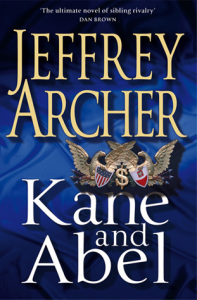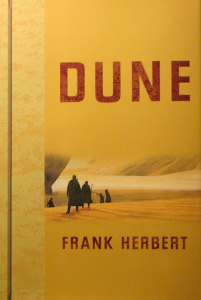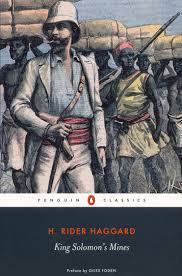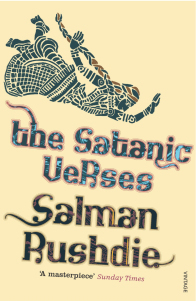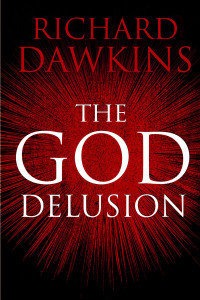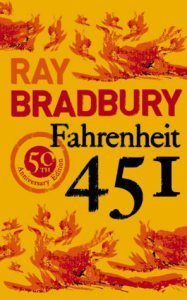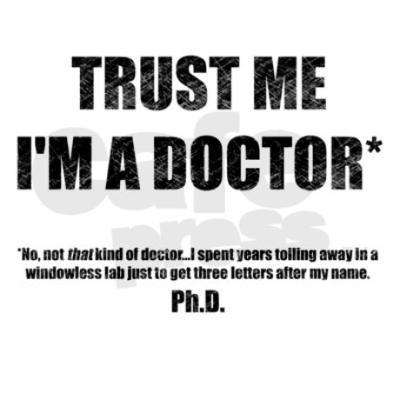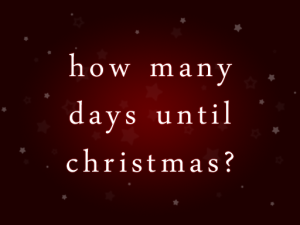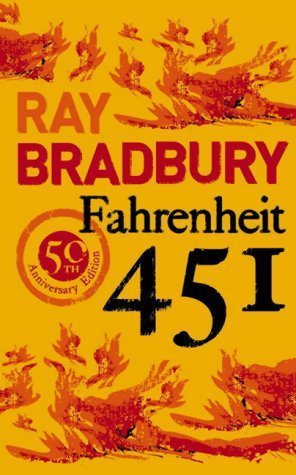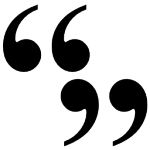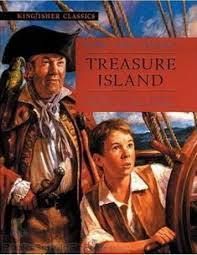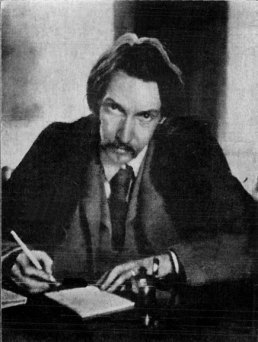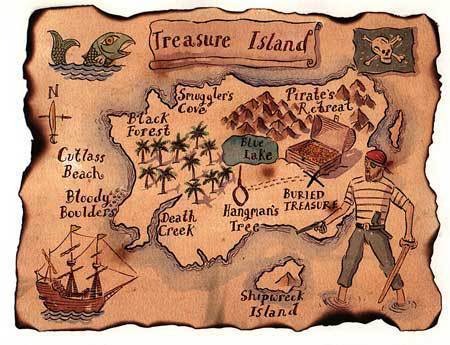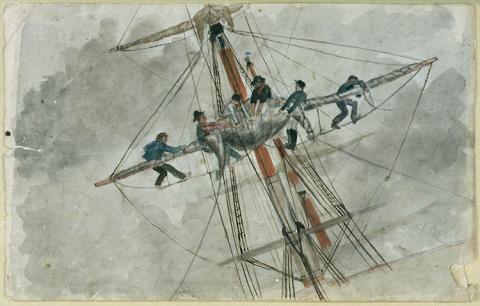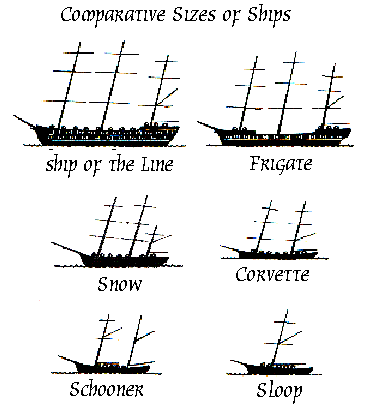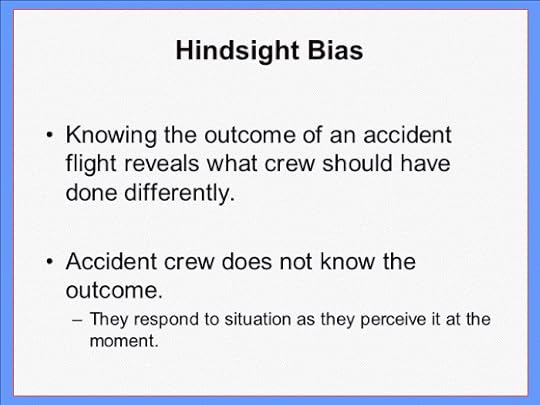Louise M.H. Miller's Blog, page 11
January 11, 2015
Let It Go
For a while now I’ve been gearing up to (self) publish my next novel, but as time has worn on I’ve not got any closer. It’s been so close to have been finished for a long time now, the book cover has been created, a blurb written….but it still is just sitting on my computer.
And the reason, it’s still not ready, and I don’t think it ever will be. I’m letting it go. I’m putting it on the back-burner. It’s being shelved.
I don’t think that I’ll hit the delete button as a lot of time and effort went in to creating it.
Even if I don’t publish it, it was a good learning curve for me. More writing done, more characters created, and in this case the difficult decision of when to let it go.
Sometimes that’s how projects go. I’ve��worked on it for so long but I just don’t feel it’s good enough. Something is lacking. So I’ll keep it on the shelf and perhaps, maybe come back to it one day, to see what the future has it store for it.
So now it’s off my mind and off my shoulders and I can concentrate on my current and future projects without continuing to look back.
Sometimes the difficult decision has to be made. It has to be let go. But it’s worth it.
Filed under: Uncategorized Tagged: indie, let it go, self publishing, writing, writing advice, writing project

January 8, 2015
Productivity Skills
At this time of year with people making resolutions, most writers will probably make a pact with themselves to be more productive with their writing. And I’m certainly one of them too. It’s fairly natural with the New Year to re-think and re-evaluate, and to look to what the future – especially what the immediate future – may bring. And part of this for me was to look at how I can be more productive. I’m not necessarily talking about how to stop procrastinating or looking to make your work area more writer-friendly etc., however these are crucial points; it’s more about how to actually being more productive, and how to feel more productive.
How to be more productive?��
Starting a new project….or continuing a project
1. Concentrate on what you want to accomplish first of all. There’s little point in jumping in feet first before deciding what’s important to you now.
2. Plan what’s to be accomplished. Once finalized which project is first, plan what you’re going to do.
3. Plan your time. As writer’s we can never neglect social media and networking when we’re working on a project, but we shouldn’t let networking impact on the project. It may be helpful and crucial to plan your time to limit – or extend – your time spent networking, and in turn your time spent on your project.
4. Stop planning so much and get started. You can plan too much. Start.
How to feel more productive?
You may be actually more productive than you think. After a day spent working on my current project, I still can feel that I’ve not been that productive, despite knowing the hours spent working that day. Hopefully – surely – I cannot be alone in this?
Like being more productive, I’ve thought about how to tackle this particular problem. In fact, I’ve thought more about this, because while part of me knows that I’ve been fairly productive, it doesn’t always feel that way.
1. Stop being so hard on yourself.
2. If you’ve done something, you’ve been productive. You don’t have to had written a full novel in one day to be productive. Productivity doesn’t have to mean results. As long as you have done something that day, however small, you’ve been productive. As long as you’ve moved forward, this could be as simply as re-wording that paragraph that doesn’t just sound right.
3. Before you start think about what you want to accomplish that day.��
4. At the end of the day – or time spent writing – think over what you’ve actually done. Include everything. From networking, to reading, to research, to actually putting pen to paper. You may find that you’ve done more than you initially think.
5. Stop looking so far into the future. Concentrate on the now; do what you can when you can. If you can do a bit everyday, that’s great, so do so. If it’s just something one day a week, that’s fine too. (Try to do what you can in the time you have.) If you want to set a deadline – set a realistic one. You do have to look into the future to a certain extent to think about what you want to accomplish and when. Set it, but don’t fret. Keeping moving forward.
These productivity issues are things that affect me. And these solutions are something that I have been working on and work for me. I’m not saying this will work for everyone; I often have said in previous blog posts that you have to find what works for you. You don’t have to follow every point but a few may be helpful.
Filed under: Uncategorized Tagged: planning, procrastination, productive writing, productivity, writing, writing advice

January 4, 2015
Best Books Read in 2014
Here’s my list again (in no particular order) of the best books that I’ve read in 2014. I enjoyed the vast majority of the books I read last year, but these select few stand out beyond the others.
Kane and Abel by Jeffrey Archer – A book that I didn’t think that I would enjoy but did.
Dune by Frank Herbert – I’ve read this book before, and will always remain one of my ultimate favorites.
King Solomon’s Mines by H. Rider Haggard – A great adventure story.
The Satanic Verses by Salman Rushdie – A wonderfully complex and multi-layered novel.
The God Delusion by Richard Dawkins – An extremely interesting read.
Fahrenheit 451 by Ray Bradbury – I cannot believe that before last year I had never read a Ray Bradbury novel. Fahrenheit 451 is truly wonderful, thought-provoking and beautifully written.
Filed under: Uncategorized Tagged: best reads, book review

December 18, 2014
And now Christmas is here…
The festive period is almost upon us. For me, today marks the last day-job work day. And in truth I’m really ready for some time off. And not just for the sheer amount of commute travelling that I have to do – nor just to give my legs a rest from cycling to/from work and train stations.
But what about my writing and writing projects? The general writing tip is to write something every day. But it may be – and is – difficult to accomplish this if you’re visiting family members for the bulk of the Christmas period – like I am.
So I’ll try to do what I can – whether that’ll be reading something for research; making notes; writing a few paragraphs here and there; doing some final editing; or for the majority just��thinking. Thinking about my work; about where I’ll take it; further developments of ideas etc etc.
So while I will be slowing down over the Christmas break, I will still do something. As a writer I think its super important that your writing work is not abandoned completely. But, of course, that may be easier said than done……
Filed under: Uncategorized Tagged: christmas, christmas break, relax, writing, writing tips

December 14, 2014
Viva Voce
I���m very proud to announce and boast a huge well done to my partner, Andrew, who successfully passed his PhD viva on Thursday. Pending minor corrections to his thesis (the norm), he will be awarded his PhD.
A viva, or viva voce a Latin phrase literally meaning ���with living voice���, but most often translated as ���by word of mouth���, is the final hurdle of a PhD and is a discussion about the work and basically a thesis defence.
After four years of hard work, his dedication was finally rewarded! Well done you! A great achievement ��� just before Christmas too!
[PhD in Materials Science and Engineering]
Filed under: Uncategorized Tagged: doctor, personal, phd, science and engineering, university, viva voce

December 8, 2014
Counting Down to Christmas
So as you can guess from the title of this blog I’m counting down to Christmas – and more specifically the Christmas break. I’m really starting to get ready for a break now and even more specifically perhaps ready for the New Year to commence.
Now is the time that I’ve started to reflect on the past year.
While I probably have achieved more than I think I have, I’m still not where I wanted to be at the end of 2014.
I had the idea that my second novel would have been self-published and on Amazon already, when in reality, it needs a final read through just to make sure.
My day job wise – well there’s always little jobs/tasks that you want to get done, but never seem to have the time.
Future writing tasks: I thought – hoped – that I’d be further on then I am.
This is not a self-pitying blog post. It’s a realization that sometimes things don’t run according to schedule.
In reality, the only person I can blame is myself. So I’m hoping that for the New Year, after a good long rest, I’ll have the physical as well as the mental energy to get back down to business.
So Christmas is coming and a break from work and the normal routines of life beckons, before the New Year dawns.
Have you accomplished everything you set your mind to in��2014?
Filed under: Uncategorized Tagged: christmas, end of year review, evaluation, Writer, writing

December 4, 2014
“Do you know why books such as this are so important?” – Fahrenheit 451
I have finally read and finished the fantastic Fahrenheit 451 by Ray Bradbury, which has turned out to be one of the most outstanding reads I have read this year.
Following is a couple of quotes from this momentous piece of literature, for those who have read it to remember its brilliance; for those who will never read it to see what they���re missing; and for those who are yet to read it to give them a piece of what look forward to.
“Everyone must leave something behind when he dies, my grandfather said. A child or a book or a painting or a house or a wall built or a pair of shoes made. Or a garden planted. Something your hand touched some way so your soul has somewhere to go when you die, and when people look at that tree or that flower you planted, you���re there.”
“Do you know why books such as this are so important? Because they have quality. And what does the word quality mean? To me it means texture. This book has pores. It has features. This book can go under the microscope. You���d find life under the glass, streaming past in infinite profusion. The more pores, the more truthfully recorded details of life per square inch you can get on a sheet of paper, the more ���literary��� you are. That���s my definition, anyway. Telling detail. ��Fresh detail. The good writers touch life often. The mediocre ones run a quick hand over her. The bad ones rape her and leaves her for the files.”
“I hate a Roman named Status Quo!��� he said to me. ���Stuff your eyes with wonder,��� he said, ���live as if you���d drop dead in ten seconds. See the world. It���s more fantastic than any dream made or paid for in factories. Ask no guarantees, ask for no security, there never was such an animal. And if there were, it would be related to the great sloth which hangs upside down in a tree all day every day sleeping its life away, To hell with that,��� he said, ���shake the tree and knock the great sloth down on his ass.”
“If you hid your ignorance no one will hit you and you���ll never learn.”
“Let���s not quibble over individuals with memorials. Forget them. Burn them all, burn everything. Fire is bright and fire is clean.”
“Only is the third necessary thing could be given us. Number one, as I said, quality of information. Number two: leisure to digest it. And number three: the right to carry out actions based on what we learn from the interaction of the first two.”
“A little learning is a dangerous thing. Drink deep, or taste not the Pierian spring; There shallow draughts intoxicate the brain, and drinking largely sobers us again.��� Pope.”
Filed under: Uncategorized Tagged: best books, best reads, books, fahrenheit 451, quotes, ray bradbury

November 25, 2014
Review: Treasure Island – Robert Louis Stevenson
A true adventure story by Scottish author Robert Louis Stevenson, in 1883.
“Pieces of eight! Pieces of eight!���
A novel of action; and��a children’s book also for adults. Children will be – and are – fascinated by the image of pirates and the share the adventure that Jim Hawkins goes on to Treasure Island, aboard the ship the��Hispaniola��to search for buried treasure.
Today, the language may seem strange to children and they may find it a difficult read. For adults it is an interesting look into the character of people, most especially Long John Silver, who in my book is the ultimate master of self-preservation.
Treasure Island��brings to life the now stereotypical view of pirates and its influence on popular perceptions of pirates is huge.��It is an adventure tale of pirates, buried treasure and peril that most young boys would crave, where pirates were brought to life, in the commonly perceived notion that they are today by Stevenson in his novel, with (now) stereotypical pirate speech, with a parrot on the shoulder, one legged, gnarly faces with plenty of rum flowing.
“Fifteen men on the Dead Man’s Chest Yo-ho-ho, and a bottle of rum! Drink and the devil had done for the rest Yo-ho-ho, and a bottle of rum!���
Hawkins is a plucky young lad, away from the cares of his mother, eager for new experiences and the chance of adventure, and the opportunity is given to him by the bombastic, ill-tempered, quarrelsome but ultimately harmless Squire, and his cool natured, sensible companion��the Doctor, each in their own way drawn by the mystery of the map and the lure of buried treasure.
It’s one of those books that at some point in your reading life you should read – if you haven’t already, not only because it’s a iconic read in our history and culture, but because it is a crackingly good read.
That was Flint’s treasure that we had come so far to seek, and that had cost already the lives of seventeen men from the Hispaniola. How many it had cost in the ammassing, what blood and sorrow, what good ships scuttled on the deep, what brave men walking the plank blindfold, what shot of cannon, what shame and lies and cruelty, perhaps no man alive could tell.���
Filed under: Uncategorized Tagged: adventure novels, children's fiction, classic novels, Jim Hawkins, Long John Silver, pirates, Robert Louis Stevenson, treasure island

November 17, 2014
Ship Design: A History Bit
Developments in ship design
Different regions of Europe affected the type of ship. For example, along the Mediterranean there was a greater need for mobility than say the speed needed for Atlantic crossings.
Geographically, there was a definite north-south divide.
Things that helped ship development
Trade – carrying capacity, speed, different commodities all had to be taken into account
Subsidies – Governments granting subsidies
The desire to explore
War
The technical developments – the maths and science behind ship design
Things that hindered ship development
The desire to keep costs down.
The lack of navigational knowledge
Accuracy or availability of tools and materials
Lack of contact between ship developments of the north and the south due to mutual distrust
Medieval shipping
According to Richard Unger, a ship is ‘an instrument for solving the economic problem of scarcity’. In other words it was a ‘way to move goods and people’. A ship was a vessel in the truest sense of the word. This analysis somewhat strips away the romanticism.
Before 1500 ship design did not seem to change all that much. Any changes that did occur tended to be subtle, simply an extension of what was already in place which makes the origins of any changes different to trace.
Some considerations
The physical environment: the characteristics of the region in which the vessel was produced; the kind of timber in use dictated the structure and character of the vessel. For example Celtic built ships were made from oak and therefore tended to be very densely built vessels, whereas in Scandinavia where pine and spruce were abundant, the vessels tended to be lightly built, long vessels.
More advanced societies could import timber and therefore adapt their vessels to its particular need, i.e. war, trade or both.
The maritime environment
Where is the ship going to be used? Along the shore? Lakes or rivers? The open sea? All these environments have different possible combinations, with their own problems and their own solutions.
The social context
The standard and the quality of the work; the skill of the craftsmen. This issue reminds us that we cannot ignore the link between maritime history and territorial (social) history.
Major developments
In hull design and construction
Different hull designs: rounded, banana-shaped, flat bottomed.
Construction: frame first (skeleton) and plant first (shell)
Method of forming the hull shape
Carvel – smooth
Clinker – overlapping
Each of these had different implications, but generally ship building moved away from carvel to clinker built before 1500.
Means of propulsion
Oars, sails, both?
Type and arrangement of sails; Square in North Europe and; Lateen or triangular in the Mediterranean; Also the number of masts and the complexity of the sail plan
From the 15th Century square and lateen sails began to be used together in a fusion of ship building techniques
War at sea
There is an ever present problem of evidence with this (and with ship development as a whole). ‘Official reports of battles are very rare, and although there are some naval resources available they are few and far between and cannot be wholly relied upon to give us an accurate depiction.
Therefore we sometimes rely upon an impressionistic view of conflict at sea. There is a tendency to apply modern and arguably anachronistic concepts to medieval warfare to fill the void.
There exists an inconsistent separation between warships and cargo ships. In tracing the history of ship design, the degree of the separation between war/cargo ships varied over time and space….
From this period, ship developments increased with northern Europe beginning to overtake those of southern Europe. For England, and then Britain after the Union, the importance of the navy and shipping, both military and merchant was paramount to control of the waves against enemies, mastery of the shipping lanes for trade and communications, and on the whole for the development and retention of the burgeoning Empire. But that’s a different story…
After all the developments from the earliest Viking vessels, through competition, necessity and opportunity, the following images better represent the different types of shipping that emerged in Europe, and beyond.
Filed under: Uncategorized Tagged: european history, history, maritime, naval history, ship development, ships


November 11, 2014
Hindsight is not such a wonderful thing
The back story…
Last week, on Friday, I had a nightmare time getting to work. Due to massive problems on the trains much of my journey was replaced by coach travel basically doubling my journey time. So two trains, a coach and a three mile walk later I finally arrived at work. The problems continued throughout my shift. I kept an eye on the situation via different websites, and it seemed likely that I’d suffer from the same problem on returning home. I had no idea if the trains would resume in time, nor if they would get me home at an appropriate hour – I easily could be stranded at train stations waiting for other trains/coaches to get me home. Now my parents live closer to work than I do. So I thought the easier option would be to go to their house for the night if the situation seemed not to improve. So that’s what I did.
But silly me, later on in the evening I checked the train I normally would have caught and low and behold it ran – albeit several minutes late. So I would have got home ok.
With hindsight I would have been fine on my journey home. But that’s not the decision I made. And the decision I made was with the information I had at the time. My train was at 18:21 but didn’t set off from it’s primary location until 17:48 which would have been far too late for me to make a decision and get down to the station on time if I knew it would run (normally I’m on my bicycle so making the journey easier – I left my bike at home knowing that there would be a real risk that I would be on a replacement coach.
Anyway…so in this case hindsight was not such a wonderful thing.
It got me thinking…
As a writer planning a lot of your novel, knowing some, most or all of your outcomes (depending on what writer you are) you already know with hindsight what is going to happen to your characters. But your characters don’t. They haven’t got a clue what’s going to happen to them, what decisions they make no matter how minor, or how they will react to a developing situation. Of course as a writer it is helpful to know what the outcome of a decision or situation will be but you must close your mind from that and put yourself completely in your characters shoes. Feel and think what they will before the ‘benefit’ of hindsight gets in the way.
You’ll often have heard sayings like having the benefit of ’20:20 hindsight’ – how has this affected you? Like me with my train problems I was irritated when I discovered that I would have got home fine. But it can’t affect your decision making process – nor the decision making process of your characters – because you don’t know it yet. You have to base your decisions on the information and gut feelings that you have at the time. Your characters must do the same. It’s probably something you do fairly naturally. I hope I do. You may naturally already put yourself in their shoes and try to gauge their reactions and decisions but after my “lightning bolt” of hindsight I’ll think about it a bit more.
The benefit of hindsight may not always be a wonderful thing when it comes to writing.
Filed under: Uncategorized Tagged: 20:20 hindsight, hindsight, hindsight benefit, writing, writing advice, writing tips


Louise M.H. Miller's Blog
- Louise M.H. Miller's profile
- 18 followers





